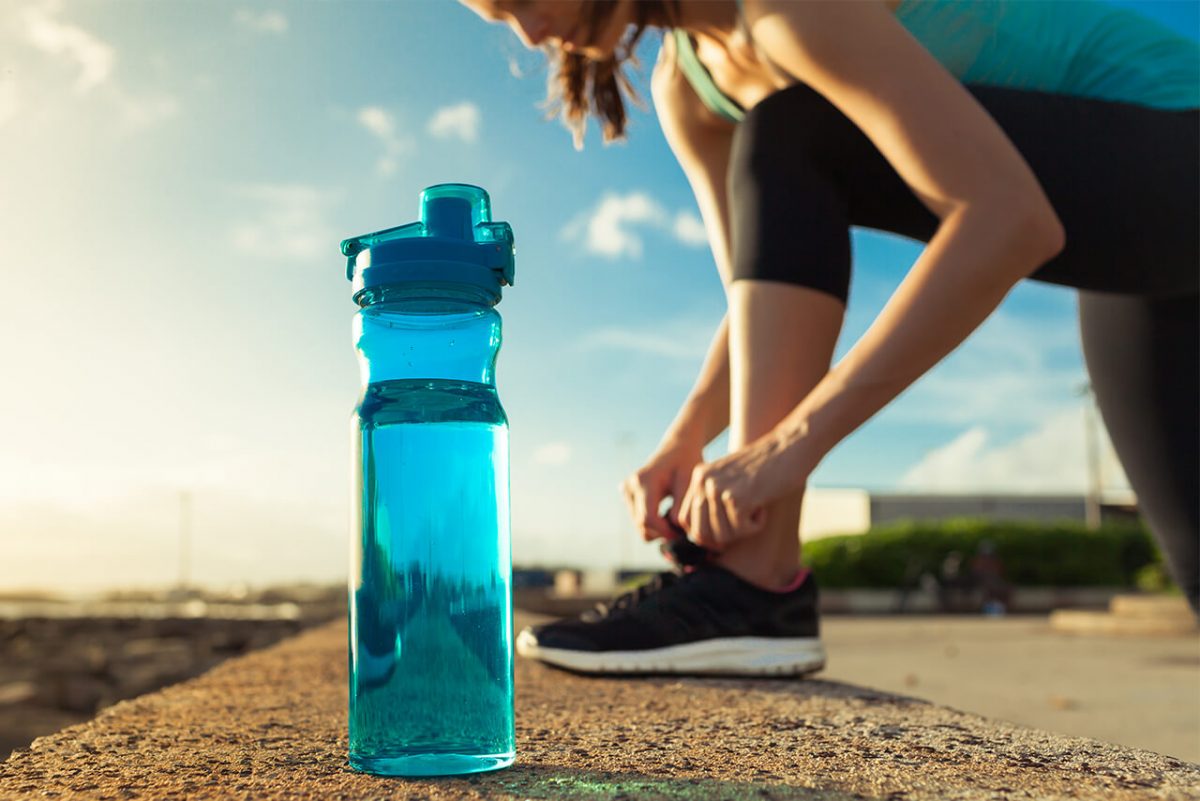By: April Graff, MS, RD, LD
Hy-Vee Dietitian
For optimal race day performance, hydrate early and often. Dehydration can negatively impact performance and cause early fatigue. Follow these tips to stay hydrated and replenish fluids and electrolytes lost from sweat:
-
-
- Focus on fluid intake all day, every day, not just around workouts.
- Always carry a water bottle (and use it).
- Weigh yourself before and after exercise to know how much fluid to replace.
- Track hydration by checking urine color – the lighter the better hydrated.
-
Practice your hydration is as important as practicing your food for a race. With extra precautions in place this year, hydration stations won’t be as available as previous years, so it is extra important to know your hydration needs and have a plan.
- How much water or sports drink will you need for the entire race?
- Are you able to carry it in a hydration pack or belt? Or will you need to coordinate with your crew to provide replenishments throughout the race?
- What works best for you? Water + food for carbohydrates and electrolytes? Sports drinks? Gels? Goo?
The average athlete loses 1-3 liters of sweat/hour. Sweat is primarily made up of water, but it also contains electrolytes that have essential roles in the body. Sodium and chloride are the most abundant electrolytes in sweat with potassium, magnesium, and calcium present in lower amounts. A runner who loses 3 liters of fluid in 1 hour is losing 1,380-5,529 mg of salt. For maximum hydration and performance, you will want to make sure to replace both water and electrolytes.
Electrolytes are found in food, sports drinks and electrolyte packets and tabs.
-
-
- Sodium-rich foods: salted nuts and trail mix, pretzels, crackers, and table salt.
- Foods high in potassium: bananas, potatoes, dark leafy greens, and citrus fruits.
- Foods high in magnesium: pumpkin seeds, almonds, cashews, peanut butter, spinach and beans.
- Foods high in calcium: milk, yogurt, almonds, and broccoli.
-





